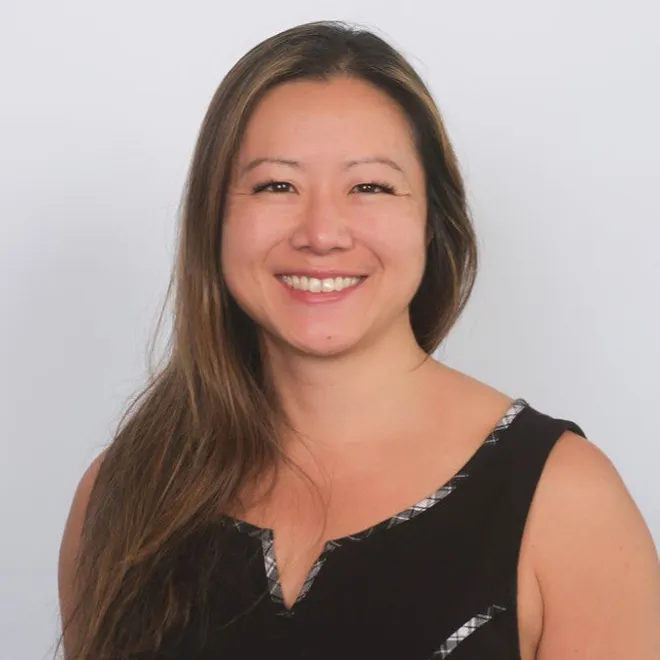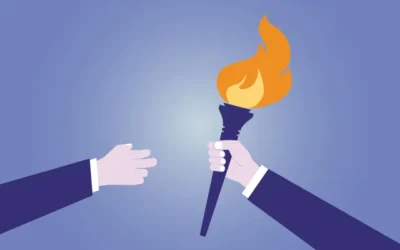Natalie Quan, CFO of CalCPA, has spent her career navigating the intersection of finance, education and professional development.
After speaking on a panel at a recent CFO conference, Quan sat down with CFO.com to share her perspective on the many challenges the accounting profession faces. She discussses issues like the evolving CPA pipeline, Big Four hiring cuts and how technology is transforming the traditional billable hour model. She also opens up about her own work habits and leadership philosophy.

Natalie Quan
CFO, CalCPA
Notable previous employers:
- San Francisco Ballet Association
- Berger/Lewis
This interview took place on Oct. 7th, 2025, in Austin, Texas, at the CFO Leadership Council’s Fall conference. It has been edited for brevity and clarity.
ADAM ZAKI: What are your thoughts when you see states eliminate the 150-hour requirement for CPA licensure? Do you think we’ll see any change in the quality of new accountants?
NATALIE QUAN: The quality will not go down. We’ll have the ability to attract more people who were afraid of that requirement or didn’t want to make that time commitment, but who would be great fits for the profession. There are so many qualified people, but the barrier is those hours.
If you look at other career fields, you can get started for less, not necessarily with less effort, but with fewer credit hours. And a lot of those extra accounting hours aren’t even knowledge-based. You’re getting them just to get them, and that’s what we’re trying to move away from in the profession. It’s not about hours, it’s about knowledge.
We’ll get a better influx of quality candidates who have the ability to enter the profession without having to meet that requirement. A lot of really smart, really qualified people just don’t have the time or resources to get those 150 hours, so they choose a different profession. If we take away that barrier, I think they’ll be able to join.
When [the 150-hour requirement] first came out, people were like, ‘Okay, I’ll take a whole summer of classes.’ Some schools even had programs to cram it all in. But how much do you really learn when you’re trying to cram it in just to check a box?
People who really want to learn and be part of the profession should be able to focus on gaining skills, not just stacking hours. That’s the shift we want — away from checking boxes and toward building knowledge.
Big Four firms are now cutting back their entry-level hiring. You started as a staff accountant yourself so you know the hustle it takes to build those skills. If those entry points shrink, what value does the CPA pathway still have for young people?
We talk about this a lot in our association. We believe there’s still a lot of value in being a CPA. It means you took the extra step to get the knowledge to help your clients or your company. There’s also the ethics piece — the ethics exam, the commitment — and that’s valuable.
“I’m proud to be a CPA. I studied hard for it, took all the exams, did all the hours and I’m still active. That’s important to me because I worked for it and I value it.”

Natalie Quan
CFO, CalCPA
Once you’ve gone through that process, you understand things differently. It’s not that others don’t care, but when you’ve put in that time and effort, you have a different level of understanding and accountability.
It’s like other professions. For example, you can read about law on Google, but when you hire a lawyer, you know that person went through the education, passed the exams and gained real experience. Trust and credibility are still very important in accounting.
How do you see technology, especially AI, changing the future of the billable hour and the way firms think about value?
A lot of our firms are talking about the billable hour and how it’s changing. Many are moving toward offering more value-added or subscription-based services. For example, charging a set monthly fee instead of counting every hour. It’s similar to a retainer model.
Every CPA firm I know is exploring different models because they know the billable hour doesn’t reflect how value is delivered today. Especially with AI, clients are aware that a lot of the work that used to take two hours, like manual data entry, now takes minutes. So the question becomes: How do you provide value, and how does that change your fee structure?
Many of the finance leaders I interview who were once CPAs have let the credential lapse. How does CalCPA approach that? Are you trying to bring CFOs back into the fold, or focus more on the next generation of CPAs?
We’re still very much about supporting our CPAs. That’s our core, but we’re also broadening our focus. We’re seeing our member firms change their offerings, especially with more client advisory services, and we want to serve that full finance ecosystem.
We want to serve CFOs and financial professionals as well as CPAs. It’s really about supporting the entire accounting and finance profession. I’m proud to be a CPA. I studied hard for it, took all the exams, did all the hours and I’m still active. That’s important to me because I worked for it and I value it.
But even if someone doesn’t have the CPA, it’s still important to be part of the financial community. The world runs on money. We need people who can make educated financial decisions and help guide others, whether they have the credentials or not.
I always wonder why people drop it after working so hard to get it. I know for many, it’s the cost. Some companies don’t pay for CPE or license renewals, and the requirements can be time-consuming. That’s part of why we’re pushing for knowledge-based learning, so it’s less about hours and more about the value you get.
A lot of people are still taking classes or coming to conferences like CFO Leadership to learn, even if they don’t need the credits. They do it for the knowledge, and if they get the credit as a byproduct, great.
You mentioned in your panel discussion that you like to work at night. Why does it work best for you?
For me, it’s really about having that quiet, uninterrupted time at night. The day is so full of meetings and conversations that it’s hard to focus, so when everything slows down, I can think more clearly and get things done. I like having some background noise, like the TV on, but there’s no pressure to pay full attention to it. It lets me focus on my work while still feeling relaxed.
I like that kind of atmosphere where it’s calm but not completely silent. I’ll have something on in the background while I’m working. I binge-watch a lot of shows and get totally obsessed with finishing them. Even when I don’t really like the show, I still have to see how it ends. It’s my way of staying productive but also winding down at the same time.





